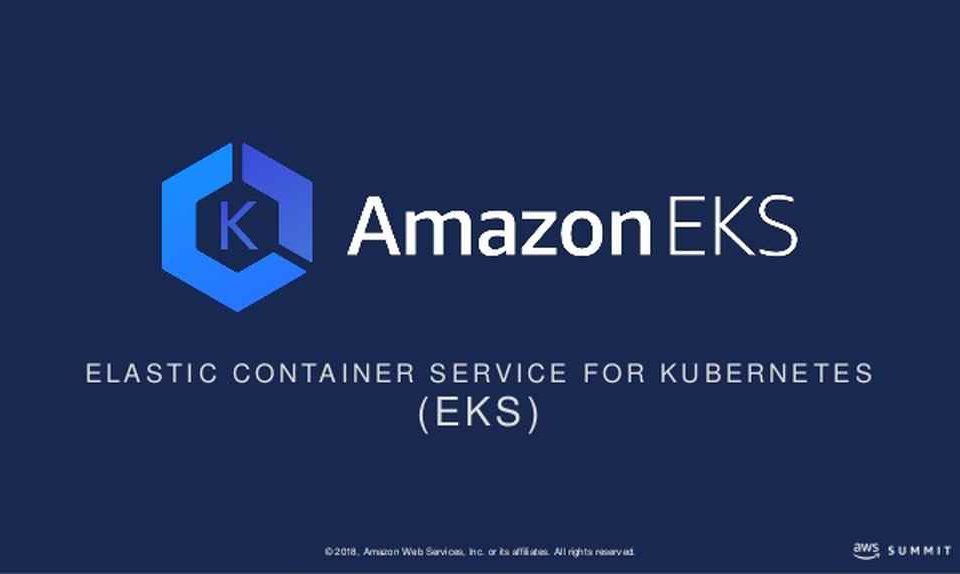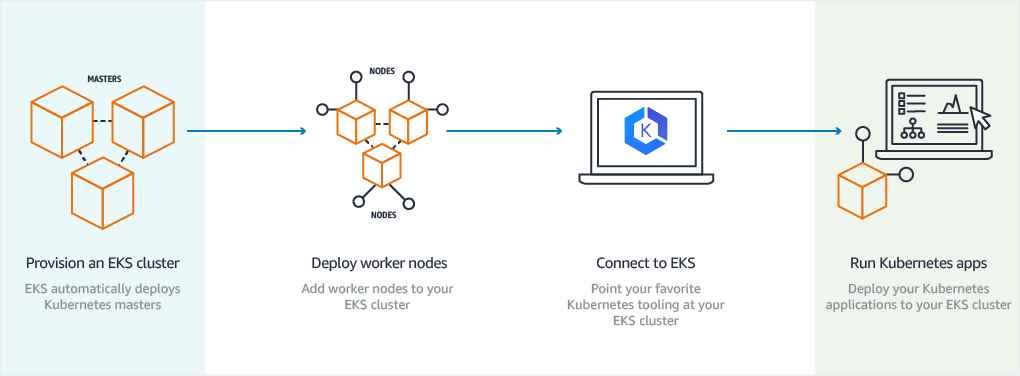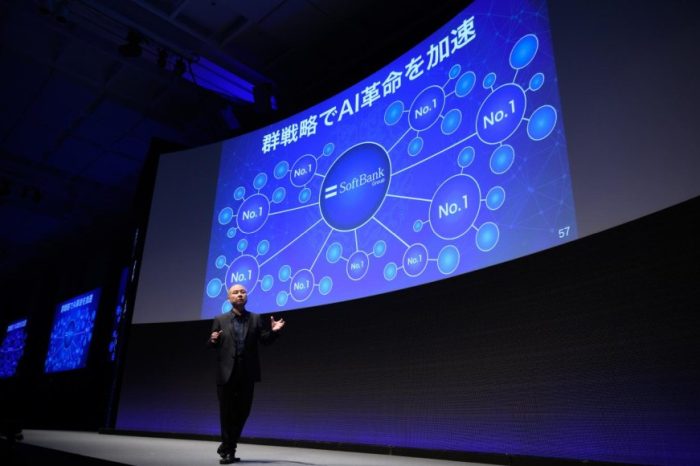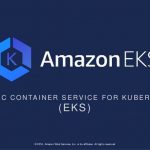Amazon EKS, an Amazon Elastic Container Service for Kubernetes, is now generally available

Last week, we reported about the release of Amazon Neptune, an Amazon Web Services (AWS)’ graph database. Today, the company announced that Amazon EKS, an Elastic Container Service for Kubernetes, is now available for use in production form. The eCommerce giant said in a blog post. Back in 2017, Amazon invited select customers for a preview of EKS during the AWS re:Invent.
Kubernetes is an open-source system for automating deployment, scaling, and management of containerized applications. It was originally designed by Google and is now maintained by the Cloud Native Computing Foundation. Amazon EKS runs the Kubernetes management infrastructure across multiple AWS availability zones to eliminate a single point of failure. Amazon EKS is certified Kubernetes conformant so you can use existing tooling and plugins from partners and the Kubernetes community. Applications running on any standard Kubernetes environment are fully compatible and can be easily migrated to Amazon EKS.
Below is how EKS works.

How EKS works: Source:Amazon EKS
Today, customers are running hundreds of millions of containers every week on AWS. Many of these customers use Amazon Elastic Container Service (Amazon ECS), a highly scalable, high-performance container orchestration service that supports Docker containers and is integrated with many familiar AWS features like AWS Identity and Access Management (IAM), security groups, and Elastic Load Balancing. In addition to Amazon ECS, Kubernetes has become very popular with AWS customers. A recent survey from the Cloud Native Computing Foundation found that 57 percent of Kubernetes users run Kubernetes on AWS, more than any other cloud platform.
Before Amazon EKS, operating Kubernetes clusters with high availability required specialized expertise and a meaningful amount of work. Customers needed to provision the Kubernetes management infrastructure across multiple Availability Zones (AZs), replace unhealthy infrastructure, and perform updates without causing downtime. Amazon EKS removes this complexity and delivers an architecture for production use that automatically runs the Kubernetes management infrastructure across multiple AZs to eliminate a single point of failure. Amazon EKS automatically detects and replaces unhealthy nodes, and it patches and performs on-demand version upgrades for the management infrastructure. This makes the Kubernetes infrastructure managed by Amazon EKS resilient, even to the loss of an entire AZ.
“More customers run containers on AWS and Kubernetes on AWS than anywhere else,” said Deepak Singh, Director of AWS Compute Services. “Prior to Amazon EKS, customers either had to do considerable work to architect a highly fault-tolerant way to run Kubernetes, or just accept a lack of resiliency. With the launch of Amazon EKS, customers no longer have to live with either of those trade-offs, and they get a highly available, fault-tolerant, managed Kubernetes service. It’s no wonder so many of our customers are excited.”
Amazon EKS takes away the pain of managing cluster operations and administration tasks, ensuring the yes, management infrastructure is properly provisioned, secure, highly available, backed up, and updated. Amazon EKS is certified Kubernetes conformant, so customers can run their existing Kubernetes applications without any code changes using existing Kubernetes tooling.
Axway, Conde Nast Taiwan, CyberAgent, EBSCO, FICO, FireEye, GoDaddy, Honeywell Movilizer, Insikt, Intuit, LogicWorks, Mercari, Numerate, Otonomo, Pearson, RetailMeNot, Schibsted, Skyscanner, Snap Inc., Teradata, Time Inc. UK, Trainline, Verisk, Verizon, and Zendesk are just a few of the customers who are adopting Amazon EKS to run Kubernetes on AWS.
Intuit Inc. is a business and financial software company that develops and sells financial, accounting, and tax preparation software and related services for small businesses, accountants, and individuals. “Intuit helps millions of customers improve their financial lives,” said Pratik Wadher, VP, Intuit. “Amazon EKS lets us combine the flexibility of Kubernetes with the scalability, reliability, and security of AWS. We plan to leverage Amazon EKS as a key component of our containers strategy so we can continue to innovate and power prosperity for our customers.”
Pearson is an education publishing and assessment service for schools, corporations, and students that’s seen a rapid growth in adoption in the past year. “The opportunity to leverage Amazon EKS allows us to hugely simplify the amount of automation and infrastructure we need to directly manage,” said Chris Jackson, Director Cloud Platforms, Pearson. “This, in turn, gives us more time to focus on a fantastic developer experience for our internal teams, which will ultimately allow them to spend more time building world class digital education services. Leveraging the rate of new developments in AWS helps my team to build like a start-up even though we are part of a major enterprise business.”
Snap Inc. is a camera company focused on empowering people to express themselves, live in the moment, learn about the world, and have fun together. 191 million people use Snapchat every day — to Snap with family and friends, watch Stories, and explore content from top publishers and around the world. “Snapchat serves millions of people around the world every day, and we’re thrilled to now leverage Amazon EKS as a core compute service that can meet our needs now, as well as upcoming plans to host several critical workloads in the coming months,” said Alex Strand, Senior Director of Engineering, Snap Inc.
EBSCO Information Services is the leading provider of research databases, e-journals, magazine subscriptions, ebooks, and discovery services for academic and public libraries. “We are very excited to join the Amazon EKS community, where we can take advantage of the ever-growing Kubernetes ecosystem while AWS absorbs the complexity,” said Tom Mitchell, Vice President of Architecture, EBSCO. “Having a unified architecture for both our on-premises and public cloud infrastructure allows us to evolve our products and migrate our workloads to AWS methodically over time, without negatively impacting our customers.”
INSIKT is a Fintech company that makes small, fairly-priced loans to lower income customers with subprime credit or no credit history. “Using Kubernetes, INSIKT has transformed our cloud-based lending and financial services platform in just a few months by giving our teams the ability to rapidly build and deploy new microservices,” said Randy Wong, CTO, INSIKT. “Amazon EKS will enable our next phase of growth by lowering infrastructure costs and reducing operational overhead, so we can continue to rapidly innovate, and deliver a best-in-class experience to our customers.”
Honeywell International Inc. is a multinational company that produces a variety of commercial and consumer products, engineering services, and aerospace systems for a wide variety of customers. Honeywell Movilizer is a cloud application that connects and orchestrates thousands of field operations teams at large manufacturing and services companies. “Migrating Movilizer’s architecture from running directly on servers into containers managed by Kubernetes has given us the ability to lower our operational costs and quickly scale into the cloud, said Vassil Hristov, CTO, Honeywell Movilizer. “Based on our experience, Amazon EKS is capable of supporting this complex, critical application and we plan to move more of our workloads to Amazon EKS. This will allow us to lower our operational costs while getting the reliability, security, and scalability of AWS.”
Trainline is the United Kingdom’s leading online train ticketing retailer. “At Trainline we’re big believers in containers and use them to process more than 7 billion messages per year in our data platform,” said David Stanley, Director of Reliability Service, Trainline. “For container orchestration, Kubernetes is the clear leader but, as with any DIY platform, requires a significant investment in engineering time that we would rather spend on improving the customer experience. We see Amazon EKS as unlocking the benefits of container orchestration without having to manage any heavy-lifting. Being part of the preview has allowed our platform engineering team to get hands on with the technology, directly work with the team behind EKS, and provide input.”
In addition to developing Amazon EKS, AWS actively works with the Kubernetes community and the Amazon Partner Network to contribute to projects and build integrations that help all Kubernetes users take advantage of AWS services and features. These partners include Alcide, Aqua Security, Canonical, Cisco AppDynamics, Cloudbees, Cloudera, Codefresh, Confluent, Couchbase, DataDog, GitLab, HashiCorp, Hasura, Heptio, JFrog, Mapr, MongoDB, New Relic, Portworx, Rancher, SignalFX, Solarwinds, SumoLogic, SUSE, Tigera, Trend Micro, Twistlock, and Weaveworks.
Heptio builds open source software projects designed to make Kubernetes easier to use when managing containerized applications, and also offers professional support services to the Kubernetes community. “Heptio is delighted to welcome AWS to the Kubernetes community with the GA release of EKS,” said Joe Beda, Founder, Heptio. “We are heartened by their commitment to delivering a simple but robust upstream managed Kubernetes service for enterprises. We see Amazon EKS as an important tool for enterprises planning their cloud native journey and are looking forward to working with AWS to help organizations adopt and integrate this critical service.”
Tigera is a San Francisco-based startup that helps businesses connect and secure their container-based applications. “We have been working closely with the Amazon Web Services team to bring production grade network security to Amazon EKS,” said Ratan Tipirneni, CEO, Tigera. “Our enterprise customers see Amazon EKS as the easiest and fastest way to run Kubernetes at scale on AWS. Tigera and EKS together provide those customers the network security they need to run their applications in production.”
HashiCorp is an open source software company that enables organizations to have consistent workflows and to provision, secure, connect, and run any infrastructure for any application. “HashiCorp Terraform and Vault are broadly used both on AWS and with the Kubernetes community today,” said Mitchell Hashimoto, founder and co-CTO of HashiCorp. “We see AWS EKS as a smart option for enterprises with large-scale, complex microservices environments and are pleased to have worked closely with AWS to provide day-zero support for AWS EKS in Terraform. This allows Terraform users to bring Kubernetes on AWS into their IT infrastructure while following the standard provisioning workflows that the operations teams already know.”
Weaveworks is a software company that provides container management and microservices in a simple, portable and resilient way to its customers. “Amazon created cloud computing as we know it, and Kubernetes is critical to the future of the cloud. The combination is obvious and compelling,” said Alexis Richardson, CEO, Weaveworks. “Amazon EKS combined with Weave Cloud’s Prometheus metrics, analytics and management, which simplifies containers deployment and monitoring for our customers, is the fastest route to production grade Kubernetes applications in the cloud. Finally, customers have a single toolchain for deploying and operating applications across any mix of on-premise servers and the Amazon cloud.” Amazon EKS is available today for all AWS customers in the US East (N. Virginia) and US West (Oregon) AWS regions




